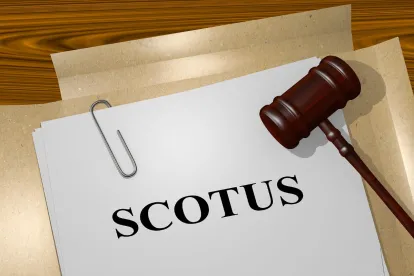Almost nine months ago, on June 13, 2022, the U.S. Supreme Court issued a long awaited decision in ZF Automotive US, Inc. v. Luxshare, LTD. that sought to resolve a decades-old circuit split regarding whether 28 U.S.C. § 1782 – which permits litigants to obtain evidence in the U.S. “for use in a proceeding in a foreign or international tribunal” – applies to private, commercial international arbitrations. Practitioners were initially hopeful that the Supreme Court had conclusively resolved this issue when it unanimously held that only bodies “that exercise governmental authority” constitute a “foreign or international tribunal” under section 1782, which meant that parties engaged in private, commercial arbitrations and ad hoc arbitrations abroad could not use the statute to obtain discovery from companies and individuals in the U.S. However, in doing so, the Court left open the possibility that “sovereigns might imbue an ad hoc arbitration panel with official authority,” leaving courts (and litigants) to grapple with the question of whether and when a foreign body may be imbued with governmental authority sufficient to constitute a foreign or international tribunal for purposes of section 1782 discovery. Few courts have addressed this lingering question in the aftermath of ZF Automotive, and those that have have interpreted the decision very restrictively, indicating that the universe of international arbitrations that section 1782 now covers may be considerably narrower than it has been in the past.
The United States District Court for the Eastern District of New York was one of the first to address this uncertainty in its recent October 27, 2022 decision in In re Alpene, Ltd. (“Alpene”). In Alpene, petitioner, a Hong Kong corporation, was a claimant in an investor-state treaty arbitration brought against the Republic of Malta before the World Bank’s International Centre for the Settlement of Investment Disputes (“ICSID”), an international arbitration institution that is part of and funded by the World Bank Group. Petitioner sought to obtain discovery from a New York resident in connection with the pending arbitration. In determining whether ICSID qualified as a foreign or international tribunal under section 1782, the court concluded that the Supreme Court had “not set out any test or provide[d] any guidelines [in ZF Automotive] for lower courts to follow” and, prior to ZF Automotive, investor-state arbitrations, such as ICSID panels, were covered. Nevertheless, the court reasoned that ZF Automotive “signal[ed] a desire to limit the availability of discovery in U.S. courts for international commercial arbitrations” and, in its case, there was not sufficient support to show that the treaty parties, Malta and China, “intended to imbue the ICSID arbitration panel with governmental authority” to qualify under section 1782.
Shortly thereafter, the United States District Court for the Southern District of New York arrived at the same conclusion. In In re Webuild S.P.A., the court similarly considered whether an ICSID arbitration panel convened pursuant to a treaty agreement between Panama and Italy was covered by section 1782. As in Alpene, the court determined that the ad hoc ICSID panel was not a “foreign or international tribunal” within the meaning of the statute, once again indicating that such ad hoc arbitration panels are not imbued with sufficient governmental authority.
It is significant to note that no court has thus far relied on or otherwise examined Alpene or Webuild, nor has the rationale of those decisions been upheld by the Second Circuit. It is also too early to determine how and whether other courts will follow these rulings, or whether this will lead to another major circuit split regarding application of section 1782 as it has in the past. However, what is clear is that Alpene and Webuild provide early indications that the statute may be interpreted very narrowly moving forward, giving parties additional grounds to object to what may be onerous section 1782 discovery requests.




 />i
/>i
